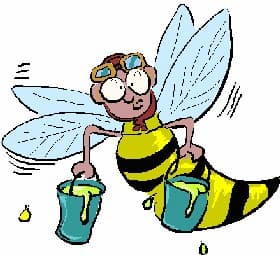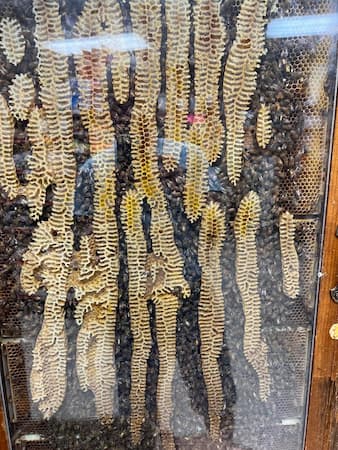Cross Pollination of Plants

Plant Cross Pollination
Plant cross-pollination has been happening to plants of all kinds since the very first garden… the Garden of Eden. Over that long period, plant cross pollination has brought us a wealth of varieties, with all kinds of plants. Without it, a red rose might be the only rose flower color. And, there would only be one size and shape of pumpkins, one type of tomato… how boring. It’s a healthy process that provides variation in all plants, thus increasing the likliehoo of survival of the species over time.
As you know honeybees and other insects play a major role in pollinating flowers of fruits and vegetables. They bring pollen to the female flowers of plants. This often results in pollen from one variety of plants fertilizing the flower of another species of the same type of plant. In today’s garden, we need to understand what cross pollination is and what it does. to our flowers, fruits, and vegetables. We are also interested in the effect upon the seed produced from cross pollination. For, it is in that seed, that the promise of a new variety is carried.
Plant Cross Pollination - The Big Question
Let’s get right to the issue that so many gardeners want to know and understand. And that is the impact upon plants, good or bad.
By far, the most common question we are asked about cross-pollination is:
“If I grow two different varieties of a type of garden plant (like corn, or cucumbers, or peppers), will cross-pollination affect the taste, flavor, or texture of the fruit or vegetable?
The answer: No, not this year. But, yes next year, if you use seed that has been cross-pollinated. For example, if you grow two different varieties of peppers, green pepper, and hot pepper, this year’s crop of green peppers will not take on a hot flavor.
When cross-pollinated, the seed produced from this year’s crop now carries some of the genetic potentials of the parent plants. It will show up in the fruit or vegetables next year.
Cross pollination is bad when the resulting plant produces an undesirable trait in the plant, or its fruit. or undesirable, when it So, if you suspect there might be unwanted cross-pollination, simply discard the seeds and buy a new seed next year.

Plant Cross Pollination Definition
Cross-pollination in plants is the merging of (male) pollen from one variety of a type of plant, with the female(ovule) of another variety of the same type of plant. The resulting cross takes some of the genetics from each parent.
Botanists use this to create new varieties or to develop varieties that carry certain traits, like weight or color in pumpkins, sweetness in fruit, or disease resistance. Some types of plants like squash are notorious cross breeders if allowed. That’s why you see so many varieties of squash.
Crossbreeding in nature is generally considered a good thing. It helps create new and different varieties and helps to continue the species. In the vegetable garden, it is not seen as a good thing, if we want o keep the seeds for next year.
Note: You can cross-pollinate two types of squash. But you can’t cross-pollinate two different kinds of plants, like squash and pepper.
When Cross Pollination is Desirable
A botanist, or an avid rose gardener, can only hope that their purposeful cross-pollination of two varieties of roses, results in a new variety of rose, with award-winning qualities. A giant pumpkin grower crosses two varieties of giant pumpkins, in hopes of creating yet a bigger, world-record pumpkin. A seed company cross-pollinates two varieties of tomatoes, with the desire to create a more disease-resistant plant. These are just a few examples of the benefits of cross-pollination.
It is important to recognize, that cross-pollination does not always create the desired results. But, it is nature’s way of aiding in the survival of the species, and in creating new variations of the species.
Intentional crosses require keeping unwanted pollens from reaching the stigma of a plant. To accomplish this, hand pollination is performed. And, the female flower is covered before and after hand pollination. More on Hand Pollination
Related Topics
Please support our site. Shop for:
- rmmatthews100@hotmail.com
- 585-721-6528
- Rochester, NY
©1999-2024 GardenersNet.Com, All Rights Reserved

